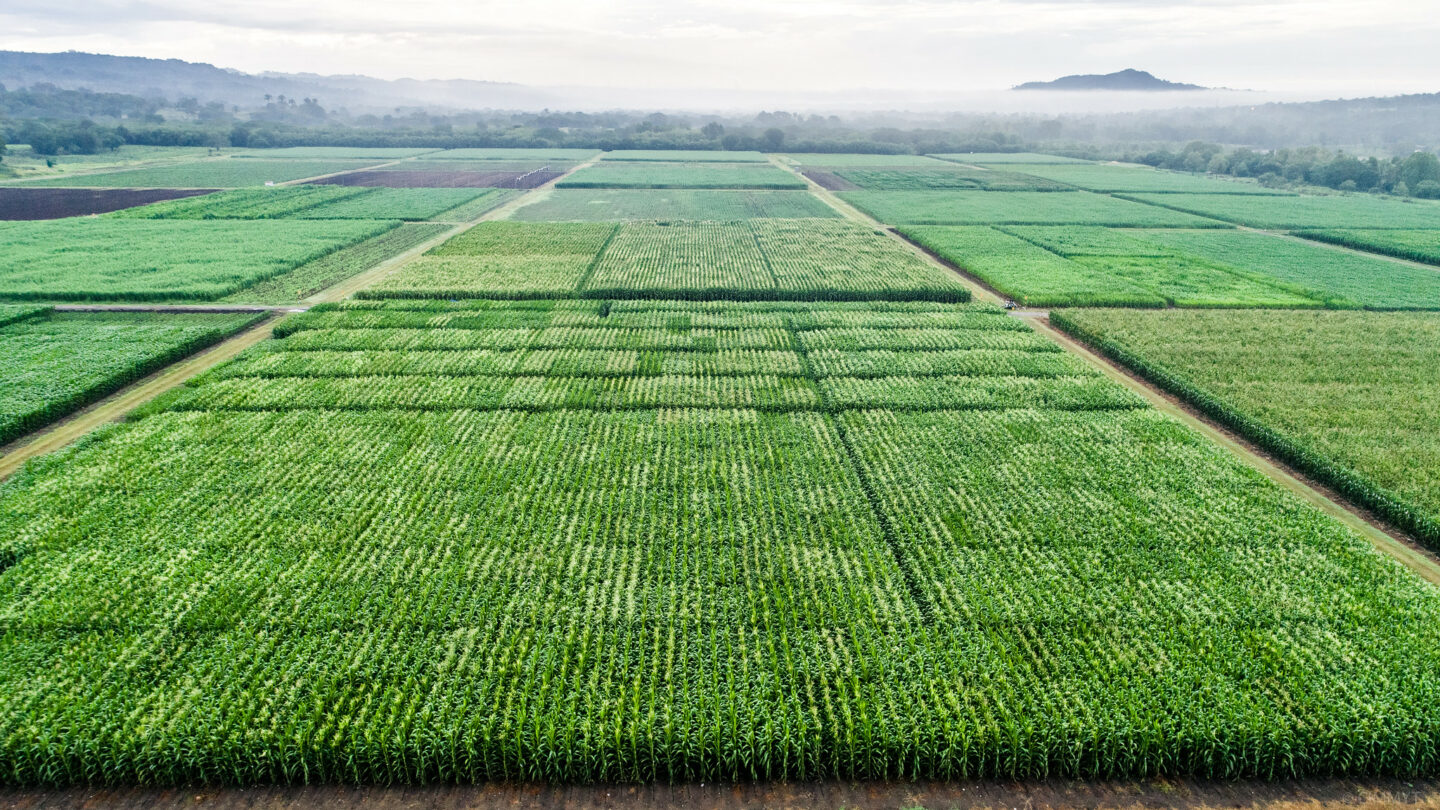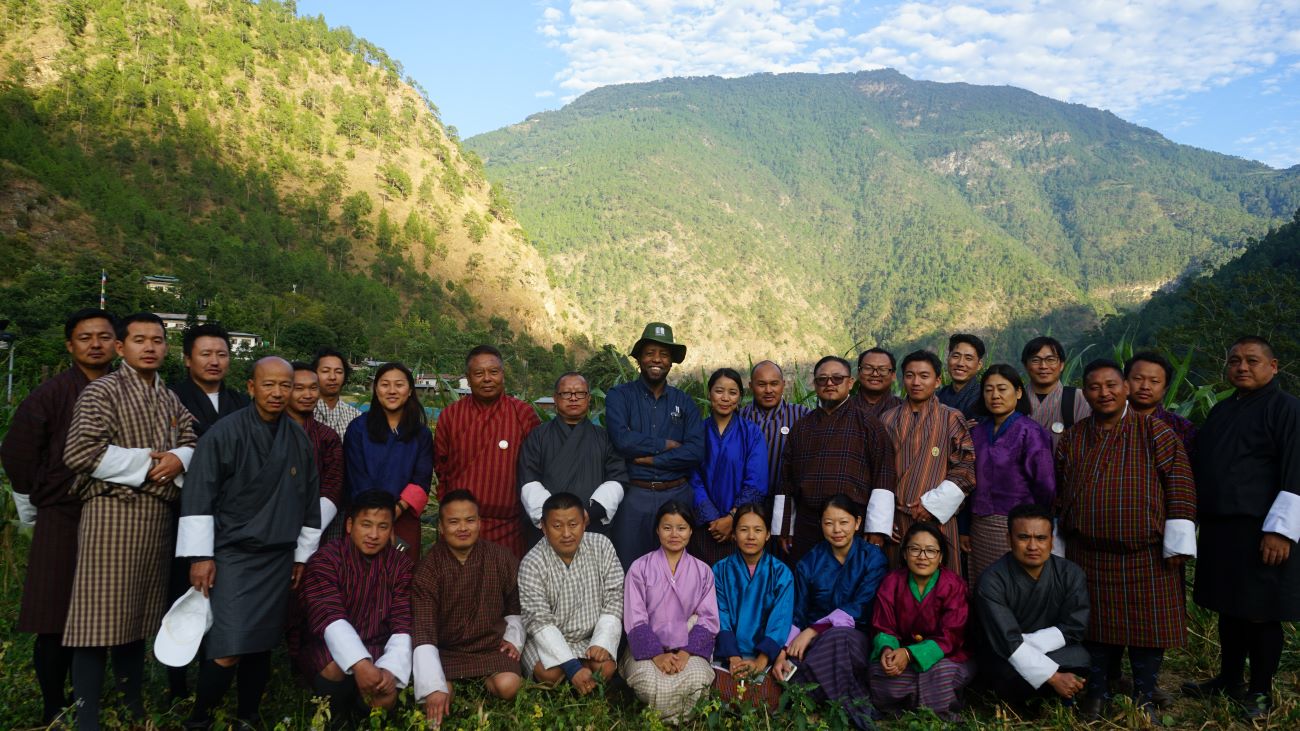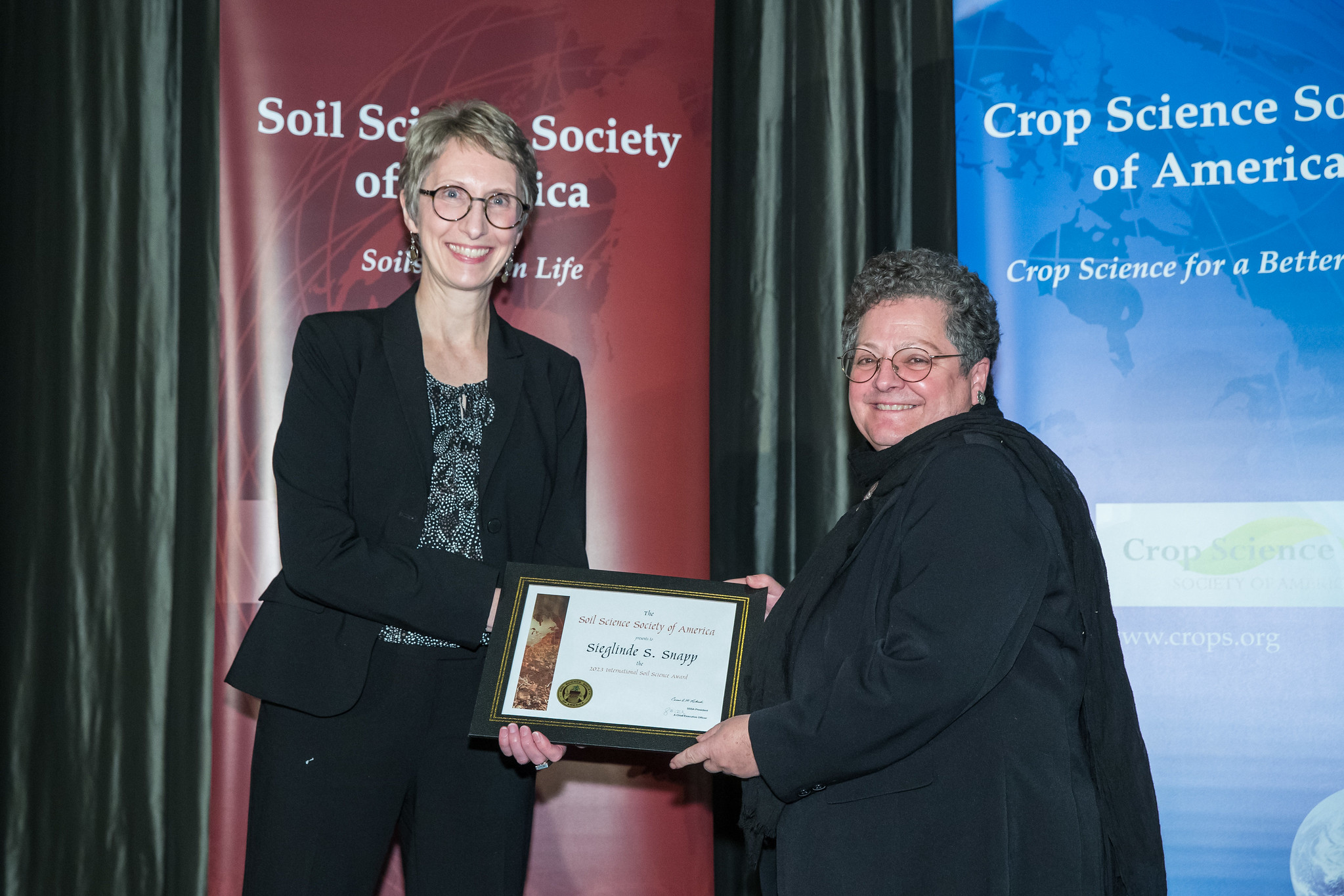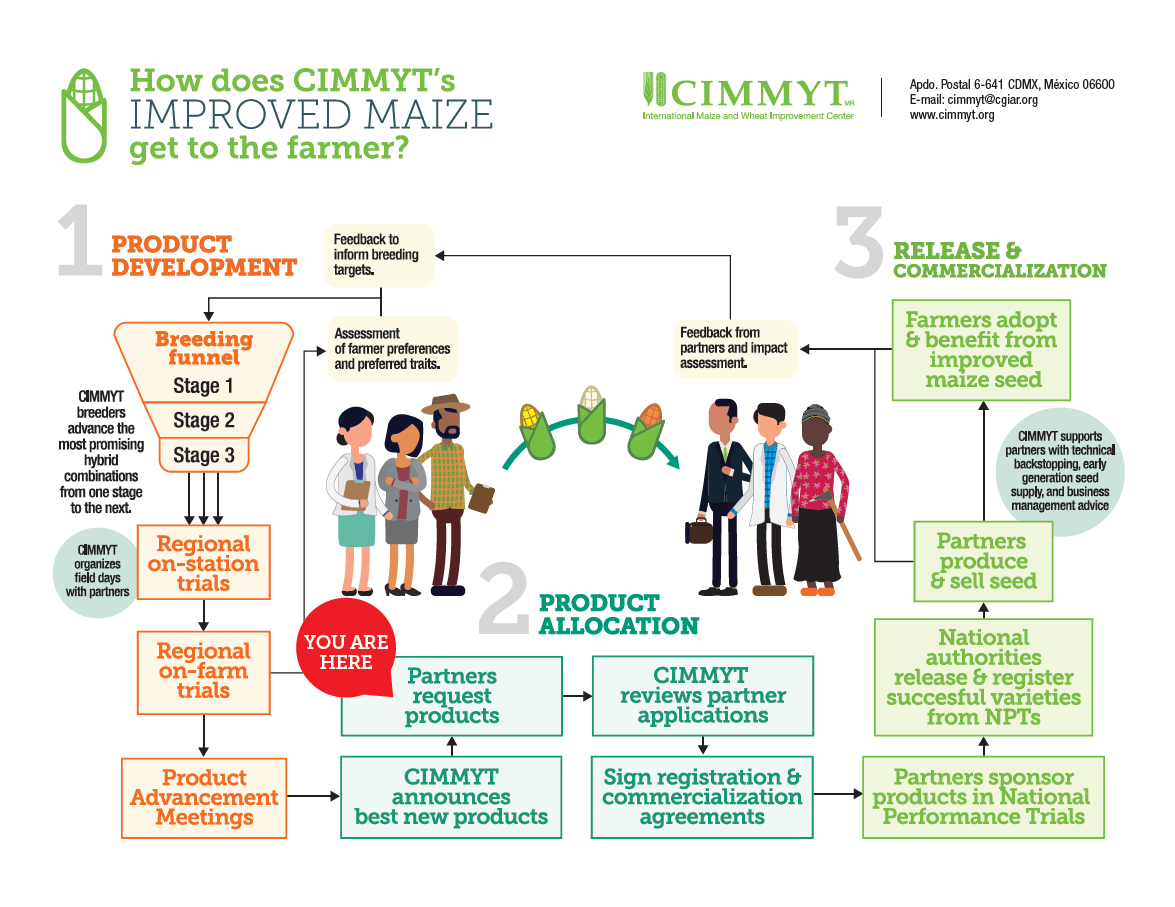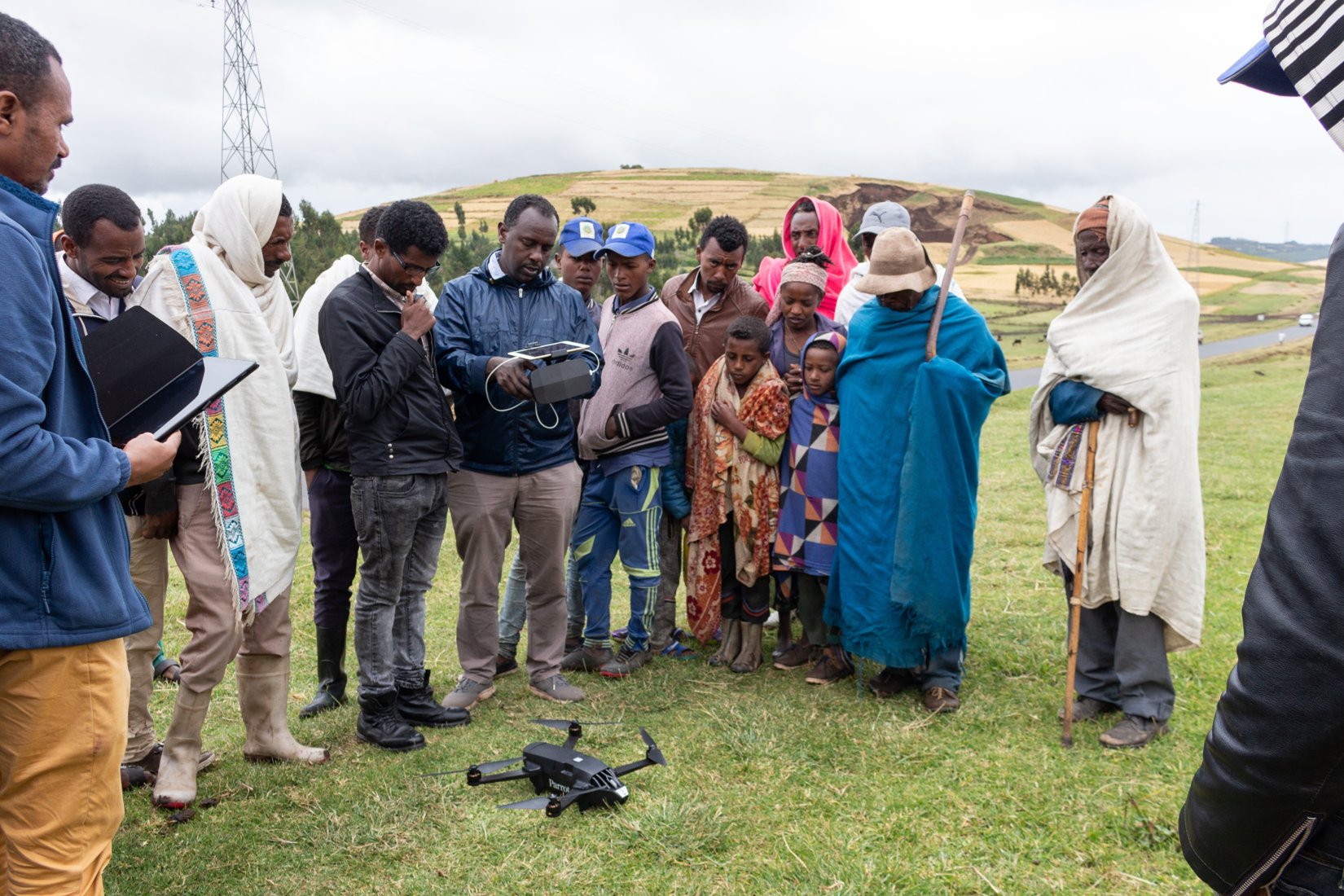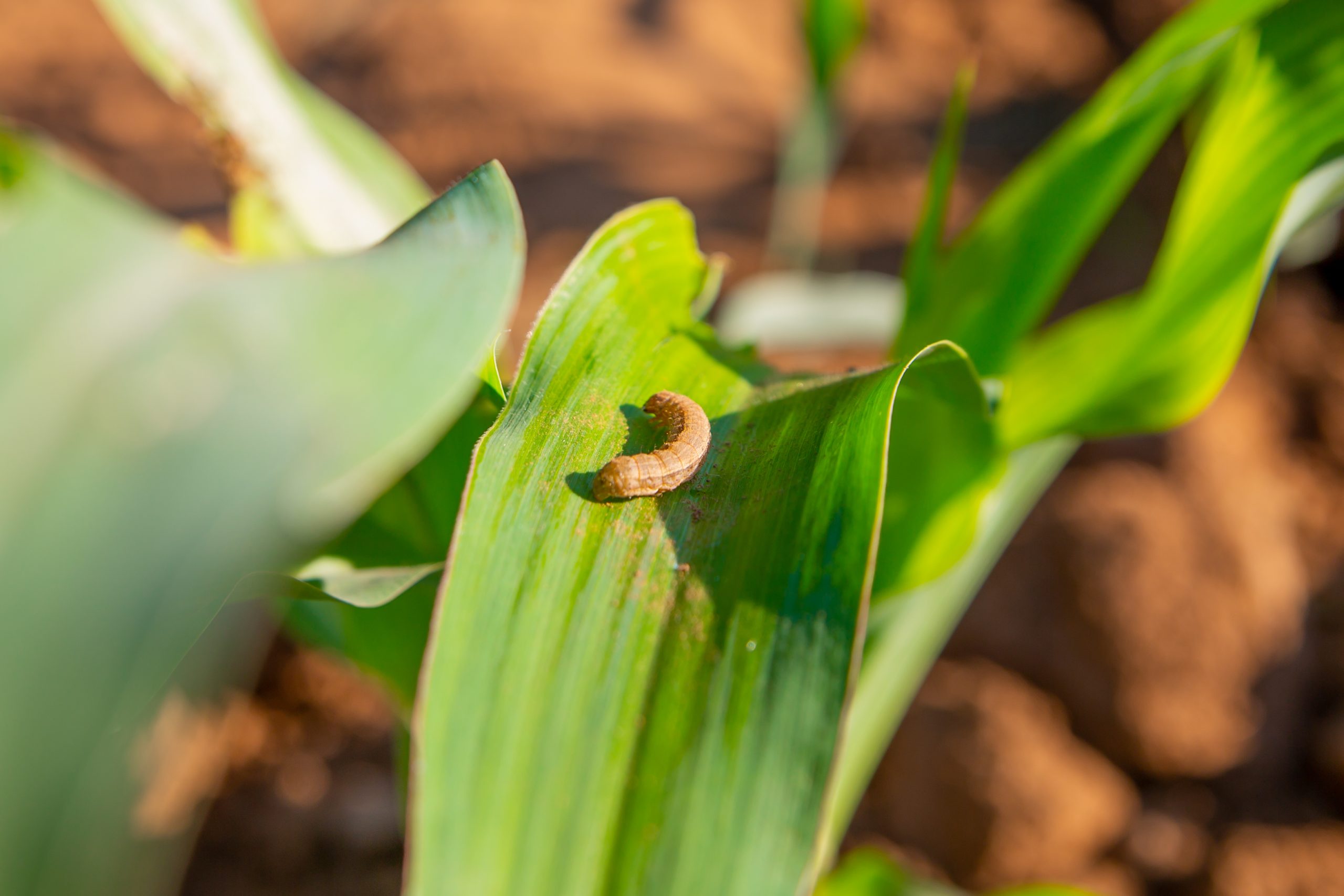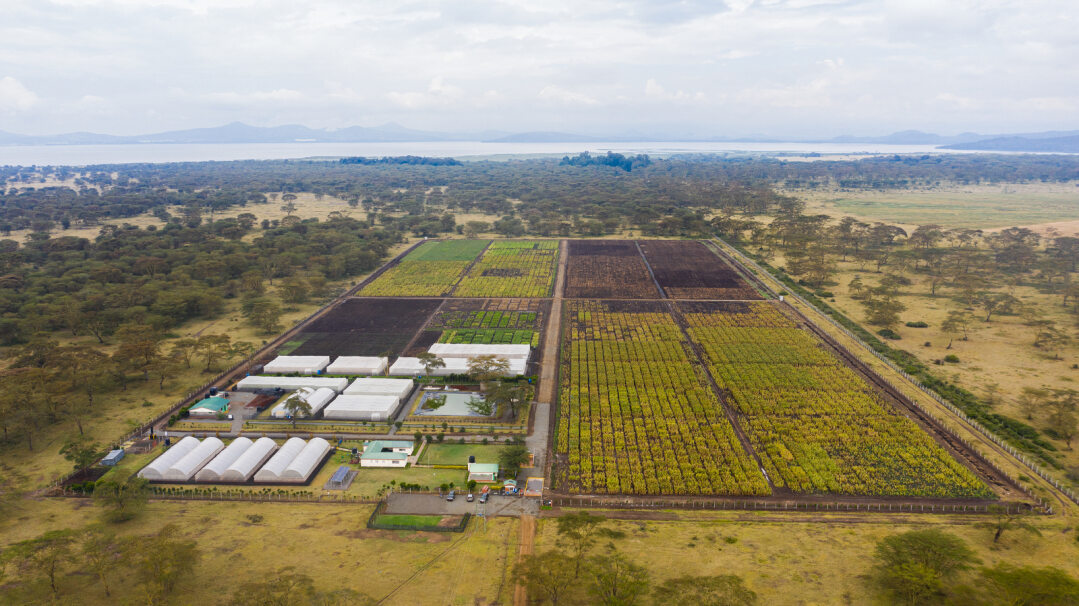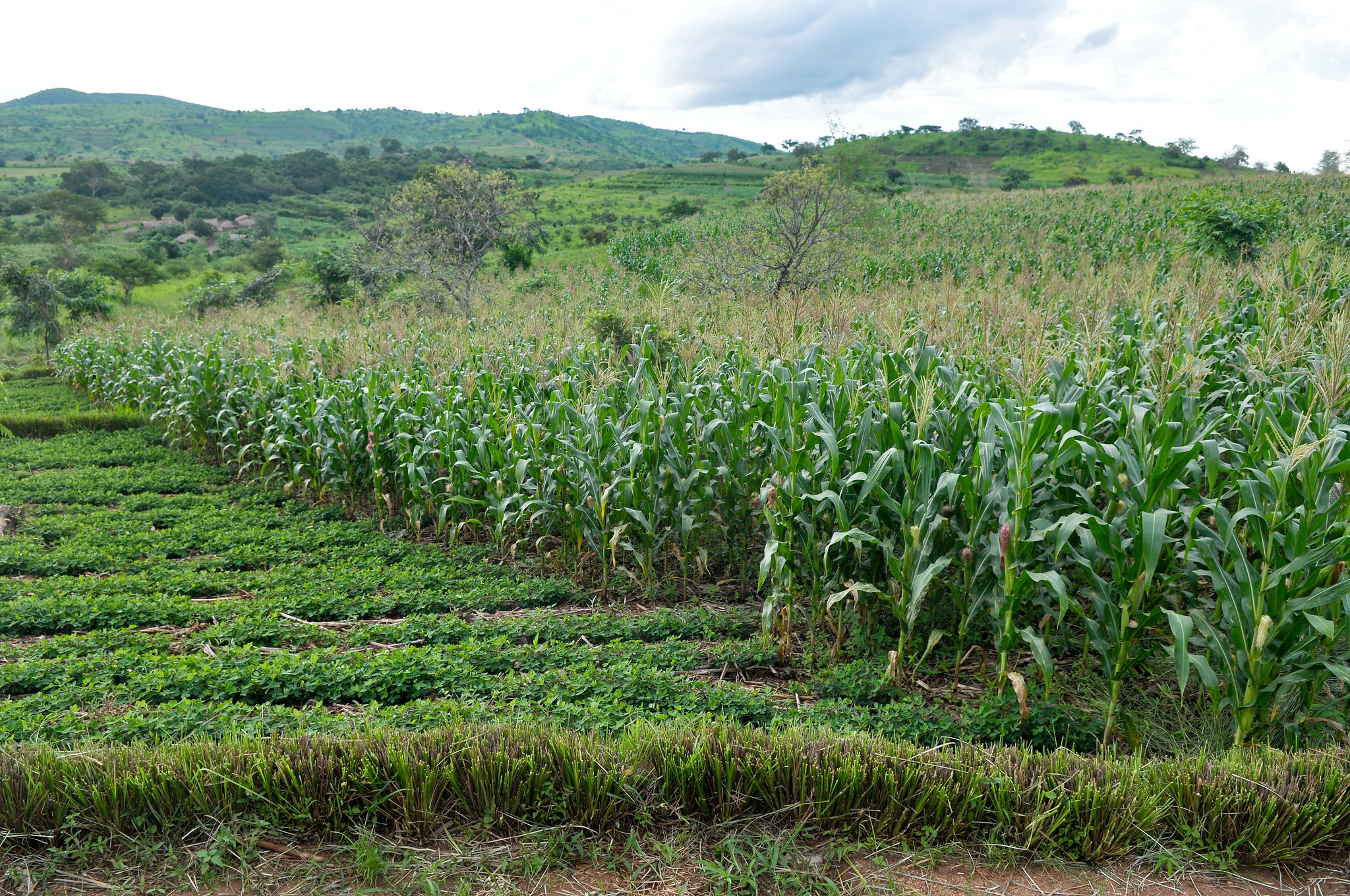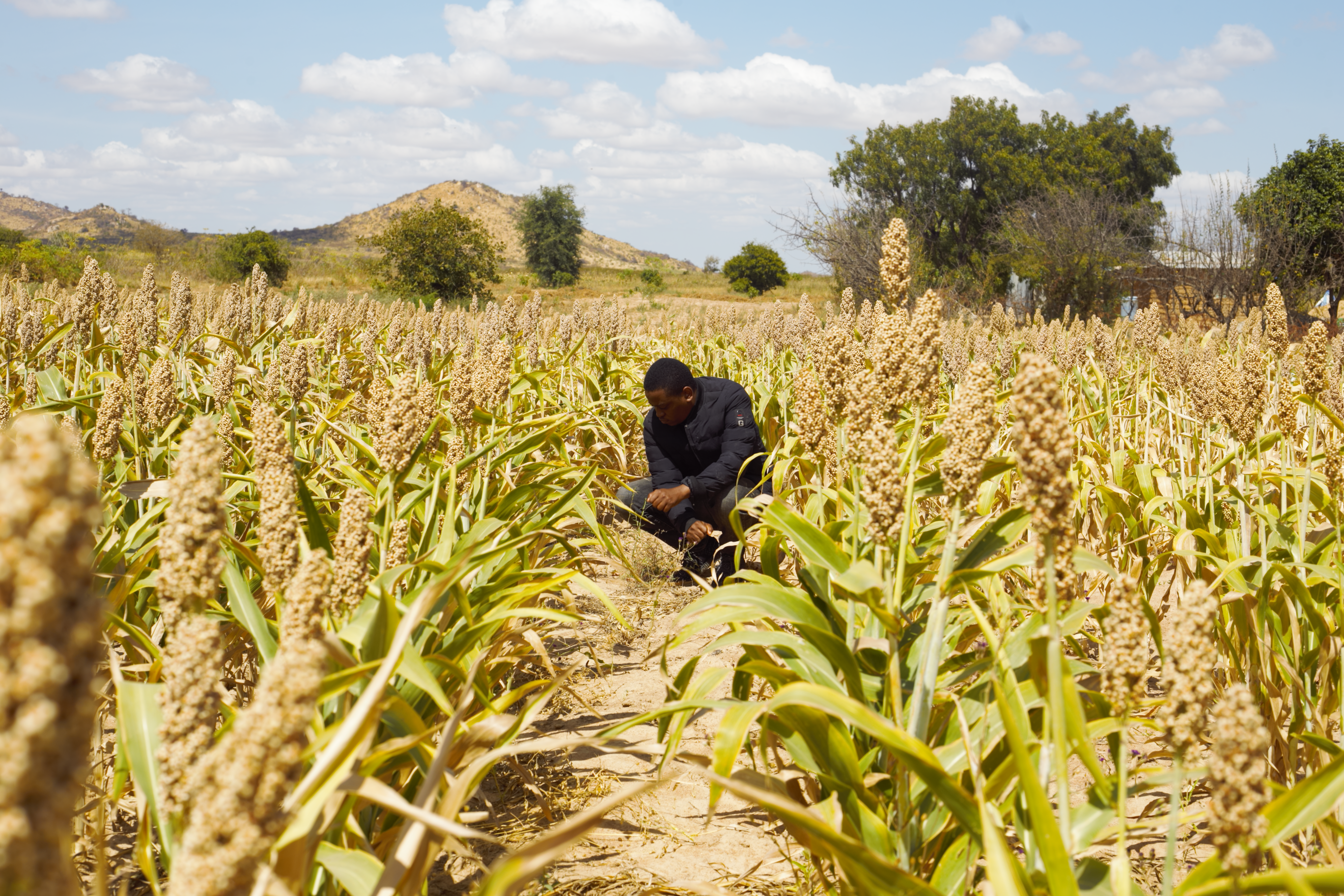Environmental health and biodiversity
The world needs better management of water, soil, nutrients, and biodiversity in crop, livestock, and fisheries systems, coupled with higher-order landscape considerations as well as circular economy and agroecological approaches.
CIMMYT and CGIAR use modern digital tools to bring together state-of-the-art Earth system observation and big data analysis to inform co-design of global solutions and national policies.
Our maize and wheat genebanks preserve the legacy of biodiversity, while breeders and researchers look at ways to reduce the environmental footprint of agriculture.
Ultimately, our work helps stay within planetary boundaries and limit water use, nutrient use, pollution, undesirable land use change, and biodiversity loss.
How CGIAR maize breeding is improving the world’s major staple crop for tropical regions
 Climate adaptation and mitigation
Climate adaptation and mitigation
Maize breeding innovations by CIMMYT, the International Institute of Tropical Agriculture (IITA), and CGIAR’s Accelerated Breeding Initiative, will deliver climate-resilient and nutritionally enriched maize varieties for farmers and consumers.
Strengthening seed systems emphasized to enhance Bhutan’s seed and food security initiatives
 Capacity development
Capacity development
The mountainous Himalayan country is facing a reduction in the production of cereals, and an increase in productivity within the limited arable area is needed.
CIMMYT at the Borlaug Dialogue
 Capacity development
Capacity development
The 2023 Borlaug Dialogue showcased CIMMYT’s collaborations in Mozambique and innovative initiatives to address agricultural challenges in Southern Africa.
Sieg Snapp receives International Soil Science Award
 Climate adaptation and mitigation
Climate adaptation and mitigation
Director of CIMMYT’s Sustainable Agrifood Systems program recognized for outstanding contributions to soil science.
Three new CIMMYT maize hybrids available from Southern Africa Breeding Program
 Environmental health and biodiversity
Environmental health and biodiversity
CIMMYT announces three new, improved tropical maize hybrids.
Discovering the potential of multispectral UAV and satellite sensors in detecting wheat rust in Ethiopia
 Environmental health and biodiversity
Environmental health and biodiversity
Sensor technology is an efficient mitigator of crop epidemic and global food security risks.
How K-State research feeds the world
 Climate adaptation and mitigation
Climate adaptation and mitigation
Source: Seek Research Magazine ()
CIMMYT collaborates with Jared Crain, former director of the Feed the Future Innovation Lab for Applied Wheat Genomics.
Evaluating Agro-ecological Management Options for Fall Armyworm in Zimbabwe
 Environmental health and biodiversity
Environmental health and biodiversity
Wheat DEWAS to expand its wheat pathogen surveillance system project to East Africa, South Asia
 Climate adaptation and mitigation
Climate adaptation and mitigation
Source: Farmers Review Africa (2 Nov 2023)
Sequestering carbon in soils: what agriculture can do
 Climate adaptation and mitigation
Climate adaptation and mitigation
Source: Cirad (1 Nov 2023)
CIMMYT studying sustainable strategies and soil carbon stocks.
Ten years later: CIMMYT facilities in East Africa continue to make a difference
 Climate adaptation and mitigation
Climate adaptation and mitigation
A decade of maize impact, celebrating 10 years of success with CIMMYT’s maize DH and MLN screening facilities.
EU-funded project refurbishes Gwanda veterinary lab, boosting livestock disease control
 Capacity development
Capacity development
Source: The Free Library (22 Nov 2023)
The LIPS-ZIM program to enhance livestock productivity and control diseases affecting smallholder farmers.
Resilience Building through agroecological intensification in Zimbabwe (RAIZ)
 Climate adaptation and mitigation
Climate adaptation and mitigation
Response of African sorghum genotypes for drought tolerance under variable environments
 Capacity development
Capacity development
Scientists revealed a vast diversity in the genetic resources of sorghum and provided a pathway for selecting promising genotypes for regions prone to drought in sub-Saharan Africa.
